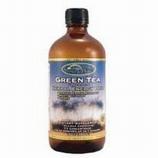
 Regular Retail: $24.95
Regular Retail: $24.95GREEN TEA HERBAL DRINK:
Historical or traditional use (may or may not be supported by scientific studies)
According to Chinese legend, tea was discovered accidentally by an emperor 4,000 years ago. Since then, Traditional Chinese Medicine has recommended green tea for headaches, body aches and pains, digestion, depression, immune enhancement, detoxification, as an energizer, and to prolong life.
Active constituents: Green tea contains volatile oils, vitamins, minerals, and caffeine, but the primary constituents of interest are the polyphenols, particularly the catechin called epigallocatechin gallate (EGCG). The polyphenols are believed to be responsible for most of green tea's roles in promoting good health.
Green tea has been shown to mildly lower total cholesterol levels and improve the cholesterol profile (decreasing LDL "bad" cholesterol and increasing HDL "good" cholesterol) in most, but not all, studies. Green tea may also promote cardiovascular health by making platelets in the blood less sticky. Green tea has also been shown to protect against damage to LDL ("bad") cholesterol caused by oxygen. Consumption of green tea increases antioxidant activity in the blood.8 Oxidative damage to LDL can promote atherosclerosis. While population studies have suggested that consumption of green tea is associated with protection against atherosclerosis, the evidence is still preliminary.
Note:
Product image may vary in look, size, quantity and/or flavor. It should only be used as a reference. Please check with the manufacturer for the most up-to-date product information.
Although we try very hard to keep the product information up-to-date, occasionally, the manufacturer changes the name and the packaging of a product without notice.
Share your thought and comments. Be the first to write a review.